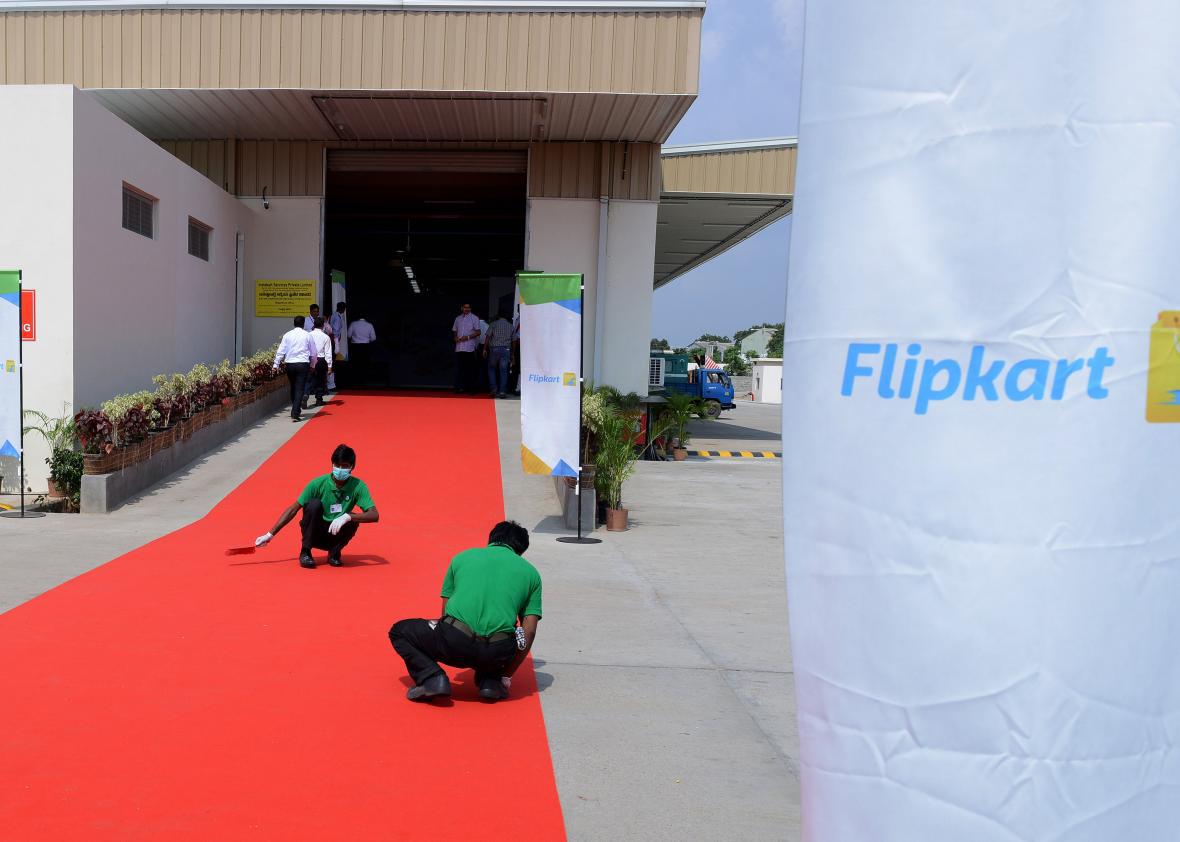Thanks to Amazon’s surprise acquisition of Whole Foods, the e-commerce giant’s odds of world domination feel more inevitable than usual these days. But in India last week, the biggest rival to Amazon’s business there showed just how precarious the company’s ascendance might be.
Last Thursday, Indian antitrust regulators announced they would allow Bangalore-based Flipkart to purchase eBay’s Indian business—a move that could seriously shake up India’s online retail market, which Morgan Stanley estimates will be worth $119 billion by 2020. As part of its acquisition of eBay’s Indian arm, Flipkart will strike a deal to make more of the American auction company’s global inventory accessible to Indian consumers, while eBay’s buyers globally will have greater access to Indian inventory provided by Flipkart. (Disclosure: Slate is an Amazon affiliate; when you click on an Amazon link from Slate, the magazine gets a cut of the proceeds from whatever you buy.)
Right now, Amazon controls 44.6 percent of that market, according to data from an Indian research firm that looked at transactions in 60 Indian cities, while Flipkart controls 35.7 percent. Last year Amazon boosted its investment in India to the tune of $3 billion, bringing its overall investment in the country to $5 billion.
Amazon’s global e-commerce business has grown over the years. In 2014, 37 percent of Amazon’s sale came from international markets, and this year the Seattle-based company ranked as the world’s third largest retailer after Walmart and CVS, according to Forbes. Chinese online retailer Alibaba is also growing—the company made a huge investment in the Indian mobile wallet firm Paytm, and the Indian startup’s e-commerce business is now valued at more than $7 billion.
And then there’s another development in India, involving yet another global tech firm. Snapdeal, another Indian online retailer, could be acquired by Flipkart in a deal that could be worth $1 billion deal this year. The deal is currently being brokered by Snapdeal’s owner, Japan’s Softbank.
According to India’s Economic Times, Amazon, Flipkart and Snapdeal controlled nearly 75 percent of the market in 2016. If Flipkart keeps this up, its name won’t just represent Amazon’s biggest headache in South Asia, but the angry gesture of choice for sleepless Jeff Bezos lieutenants.
